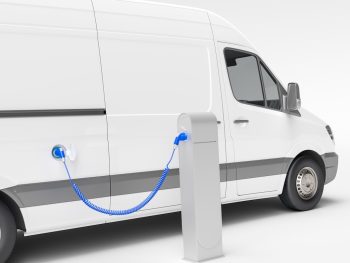ZEV mandate revisions that allow petrol, diesel and hybrid vans to stay on sale past 2030 have been greeted by many within the fleet sector but the industry has also called for more incentives for van electrification.

The Department for Transport said Sunday that it would relax the UK’s ZEV mandate rules for automakers, responding to the US tariffs.
New vans with an internal combustion engine (ICE) can stay on sale until 2035, alongside full hybrid and plug-in hybrid vans, and hybrid cars.
The Government will also introduce new flexibility in the ZEV mandate by allowing for van to car transfer on ‘credits’, i.e. one car credit will be exchanged for 0.4 van credits, and one van credit will be exchanged for 2.0 car credits
The changes follow widespread concerns about the challenges of van electrification and industry lobbying, spearheaded by the Zero Emission Van Plan joint campaign by the BVRLA, Logistics UK, Recharge UK, the Association of Fleet Professionals (AFP) and the EV Café.
The AFP said that van electrification is proving much more problematic than cars, with many operators finding current vehicles simply unsuitable for their needs in terms of range, payload and cost.
Paul Hollick, chair at the industry body, added that the new revisions create a degree of breathing space, with diesel and hybrid vans available until 2035.

“This looks like a more realistic timeframe that will allow ongoing development of new vehicles and a process of adaptation by fleets.
“However, there still needs to be material, effective incentives for operators to make the transition to electric vans over time, otherwise there is a possibility we are simply kicking the can down the road. The ideas included in the Zero Emission Van Plan we created with BVRLA and others last year should especially be examined.
“Overall though, it’s positive that the Government has listened to the fleet and motor industries, made changes to their approach, and appear to be open to making further revisions in the future in response to changing conditions.”
But FleetCheck said the changes “don’t go far enough” to resolve electric van issues.
Peter Golding, managing director at the fleet software specialist, said the Government would almost certainly have to make further revisions in the future to create momentum behind van electrification.

“The fundamental issues that fleets tell us they are facing when it comes to electric van adoption are that the available vehicles are too expensive, don’t have adequate capacity for their needs, and lack sufficient range.
“The moves that the Government has made don’t go far enough towards tackling these core problems. In creating a situation where diesel and hybrid vans can stay on sale until 2035, they’re potentially just giving fleet operators an excuse to continue using ICE vehicles and ignore the issue for a few more years.”
There were only really two potential solutions to this problem – either incentives for adoption from the Government or more capable vehicle designs – according to Golding.
“We are likely to see electric vans become more suitable for fleet use over time and almost every month, we see incremental improvements to range and payloads, while prices are becoming more attainable. However, whether this is happening at a pace sufficient to overcome operator objections to these vehicles is very much open to question.
“In the company car sector, successful adoption has been powered by taxation advantages – especially zero or very low Benefit-in-Kind. There is nothing resembling the same level of assistance in the electric van market and, as a result, no real impetus for change. This is the area where the Government needs to act.”
And business group Logistics UK said the changes do not address the practicalities of incorporating electric vans into commercial fleets.

“The sector is fully committed to decarbonisation, but commercial vehicles are acquired and used very differently to cars, and zero tailpipe emission vehicles must make commercial and operational sense before businesses can incorporate them into fleets,” stated deputy director – policy Michelle Gardner.
“There are still significant barriers preventing more widespread adoption, and our members cite increased vehicle costs, lack of usable public charging, the time and cost of installing infrastructure at depots and higher regulatory burdens.
“These are practical concerns that need to be addressed, and we continue to urge government to work closely with the logistics industry and give operators the confidence to invest in green fleets while ensuring the resilience of the UK’s supply chains moving and delivering the goods that we all rely on every day.”

